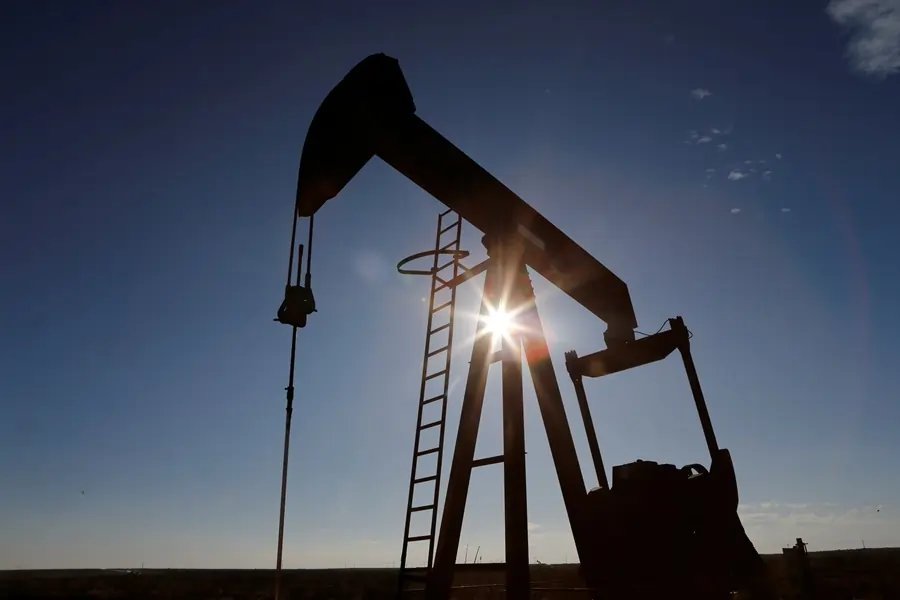Oil prices set for weekly loss on China demand fears


By Robert Harvey and Enes Tunagur
LONDON (Reuters) -Oil prices fell on Friday, and were heading for a weekly loss, on worries about waning Chinese demand and expectations of fewer U.S. Federal Reserve interest rate cuts.
Brent crude futures dropped 97 cents, or 1.34%, to $71.59 a barrel by 1011 GMT. U.S. West Texas Intermediate crude futures were down 94 cents, or 1.37%, at $67.76.
For the week, Brent is set to fall 3% while WTI is set to decline nearly 4%.
China’s oil refiners in October processed 4.6% less crude than a year earlier because of plant closures and reduced operating rates at smaller independent refiners, data from the National Bureau of Statistics showed on Friday.
Meanwhile, China’s factory output growth slowed last month and demand woes in its property sector showed few signs of abating, adding to investors’ concerns over the economic health of the world’s largest crude importer.
“China served a timely reminder about the true state of its oil sector. The country’s refinery throughput declined for the seventh successive month in October,” PVM analyst Tamas Varga said.
Speaking on Thursday, Federal Reserve chair Jerome Powell said the U.S. central bank did not need to rush to lower interest rates.
A slow down in expected interest rate cuts could curtail economic growth which would limit fuel demand.
Oil prices also fell this week as major forecasters indicated slowing global demand growth.
The International Energy Agency forecast global oil supply would exceed demand by more than 1 million barrels per day in 2025 even if cuts remain in place from OPEC+, while OPEC also cut its forecast for global oil demand growth for this year and 2025.
Providing a floor to the price slide this week, U.S. gasoline stocks fell by 4.4 million barrels last week to the lowest since November 2022, the Energy Information Administration (EIA) said, outweighing a 2.1 million barrel build in crude stocks.
Without the weekly statistics on US oil inventories the major oil contracts would have probably settled lower. Gasoline supported the whole complex,” PVM’s Varga added.
(Reporting by Robert Harvey and Enes Tunagur in London, Nicole Jao in New York and Gabrielle Ng in Singapore; Editing by Christina Fincher)
Crude oil is a natural, unrefined petroleum product composed of hydrocarbon deposits and other organic materials. It is extracted from the ground and refined into various products, including gasoline and diesel.
The Federal Reserve, often referred to as the Fed, is the central banking system of the United States. It regulates the U.S. monetary and financial system, including setting interest rates.
OPEC, or the Organization of the Petroleum Exporting Countries, is a group of oil-producing countries that coordinates and unifies petroleum policies to ensure the stabilization of oil markets.
Gasoline stock refers to the inventory of gasoline held by refiners, distributors, and retailers. It is a key indicator of supply and demand in the oil market.
Refinery throughput is the amount of crude oil processed by a refinery over a specific period. It indicates the operational efficiency and capacity of the refinery.
Explore more articles in the Trading category











